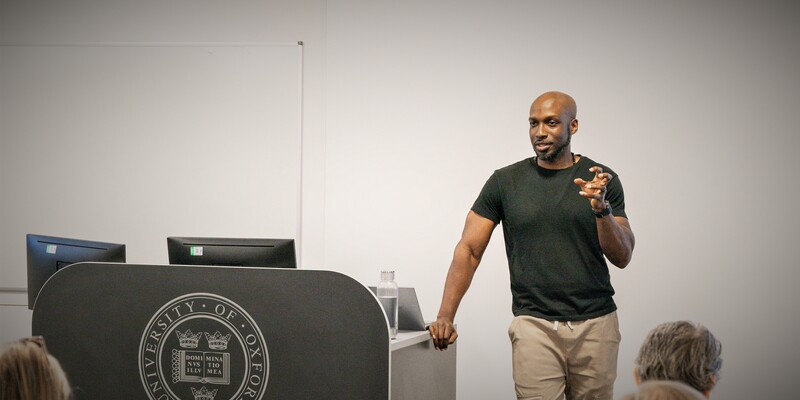Improve your study habits: How to focus when studying

By Georgina Odafe
•
Sep 28, 2023
‘Why can’t I focus while studying?’
Many students ask this question.
We live in a world where avoiding distractions is nigh on impossible. Dings, pings and endless notifications derail our attention, erode our focus, and can soon leave us languishing in a pile of deadlines with zero momentum to meet them.
“Push notification is a euphemism for pull attention.”
In fact, a recent study showed that smartphones can negatively impact short-term memory. Not ideal when you’re trying to get the difference between mitochondria and ribosomes down before an exam.
No wonder distractions like these can lead to obstacles like procrastination, poor time management etc., and seriously drain your motivation reserves.
The question is, how to solve this problem?
Let’s take a look at a few key techniques and strategies that can help you beat distractions, overcome overwhelm, and stay on track with your course deadlines to achieve academic success.
Three challenges to staying focused while studying
Procrastination
If procrastination prevents you from studying, then you’re not alone. Studies show that all students procrastinate often, while 75% view themselves as regular procrastinators.
Procrastination often happens because of poor time management and stress. You sit down to work, feel too anxious or disinterested to focus, and the next thing you know you’re flicking through Netflix, trying to bury the inevitable dread of that incoming deadline.
This kind of procrastination cycle inevitably leads to poor academic performance and puts a strain on mental wellbeing. You worry about how to cover the course content, which leads to dwindling effort with your assignments, low self-esteem, and more stress.
Distraction
How often do you get distracted while studying?
Research shows that the average student breaks away from studying five out of every 15 minutes during a typical study session. Which sounds harmless but can be hugely destructive to your ability to focus. Research shows it takes an average of 23 minutes to regain full focus following a single interruption. A hit that can reduce your productivity by a whopping 40%.
For example, let’s say you’ve set aside two hours for studying, but also elect to check messages and reply at intervals. This is an approach that guarantees you taking significantly longer to complete the material, and will leave you feeling stressed by the time you do.
Distractions also prevent what you've studied from being integrated into your long-term memory. You forget things after reading them because you didn’t focus long enough to retain the information. Cue that unnerving feeling as you stare down at that exam question that you know you researched, but that you’re now drawing a blank on.
Poor time management
Life as a student can be hectic.
Some students balance school and part-time jobs. Whilst others value making time for recreation alongside their studies.
If you are always busy, keeping up with classes and focusing during your study sessions can be difficult. Researchers have even found a relationship between stress and poor time management skills. Students get stressed when they feel powerless over their time. Meanwhile, those who successfully organize their activities and finish them on time barely encounter overwhelming, time-sensitive situations.
This makes efficient time management a great way to prevent stress triggers, which in turn allows you to remain in the best mental state for focusing on what you’re studying.
When the opposite happens, the build up in stress can cause students to withdraw from a semester or drop out due to low grades, which is why there’s been a 28% year-on-year rise in the number of English university dropouts in recent years.
Proven strategies to improve focus and productivity
Studying doesn’t have to be a chore.
To achieve academic success, you must improve your focus and productivity. Let’s talk about five study techniques that have helped students focus.
The Feynman technique
“The person who says he knows what he thinks but cannot express it does not know what he thinks.”
As a student, The Feynman Technique helped me understand the concepts behind topics.
Through reviewing, this technique ensures the things that you study will be retained in your long-term memory. So how can you implement the Feynman technique into your study routines?
Pick a topic from your course content, then read and study it.
Teach it to someone else, like a friend or yourself. The point is to use uncomplicated terms to explain it to the person.
Identify the gaps in your knowledge. Highlight and study them again to improve your understanding.
Improve and refine your explanation, then do step 2 again.
Repeat the four steps until you understand every aspect of the topic.
Setting goals & planning systems
Setting academic goals is an easy way to improve productivity.
While goal setting makes you feel good about yourself for the moment, you might find it tough to keep up later. As a student, your goal is to achieve academic success. By building a system of daily habits, you reduce the pressure of your goals whilst creating the routines to help you reach them.
When you can’t fulfil your goals, it affects your mental wellbeing. So focus on forming attainable daily and weekly routines to become a better student. Doing this shifts your attention from achieving goals to focusing on the process.
Body doubling & virtual coworking
We’ve long used body doubling to boost productivity and focus while studying.
You must have visited a friend to study together before the exam, but this method is ineffective. It’s easy to get lost in conversing with your friends. With FLOWN, you can access a whole community of study partners through videoconferencing.
Body doubling uses accountability to help you focus, while virtual coworking connects you to others who want to be productive.
Practise healthy living
Your lifestyle practices play a role in your productivity as a student.
A wellness routine comprises habits that reduce stress, improve focus and boost memory. These habits can include exercise, proper nutrition, and getting enough sleep. But mindfulness practices like breathwork and awe walks can offer an enriching spur to motivate you to study.
You can also consult medical personnel for wellness practices based on your medical history. When you follow a healthy routine, you study well and have more energy to focus on what you need to get done.
Immerse yourself in deep work
Deep work is another way to combat distractions during studying or study sessions.
Cal Newport explained deep work as focusing on a single activity for planned and sustained periods. This can help you overcome distractions by priming your mind to enter a flow state, which can 5x your productivity.
There are several approaches to doing deep work. When creating a schedule, you must determine the location, duration, and other necessities. Be sure to keep your workspace free of distractions so you can focus on studying.
Another thing to consider is time. How long can you devote to deep work during your study session? Think about when to take a break and how you’ll measure your progress.
Focus on studying and achieving academic success
Studying comes with challenges, but you can overcome them with the techniques above.
They will help you achieve academic success and be more productive. Yet, if you still struggle to focus, seek help from teachers, or consult a certified productivity coach.
You can also learn from other students' techniques to be more productive and achieve academic success.

















